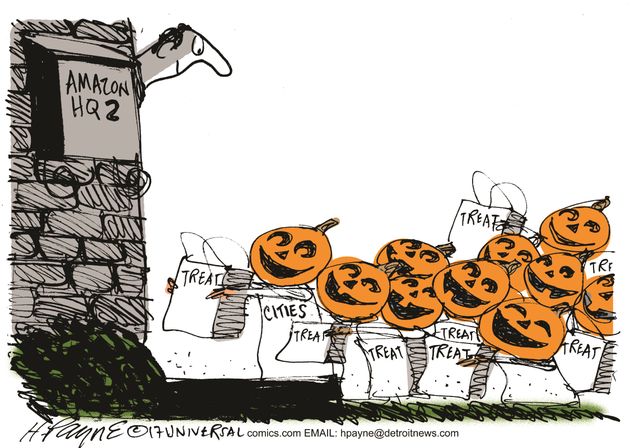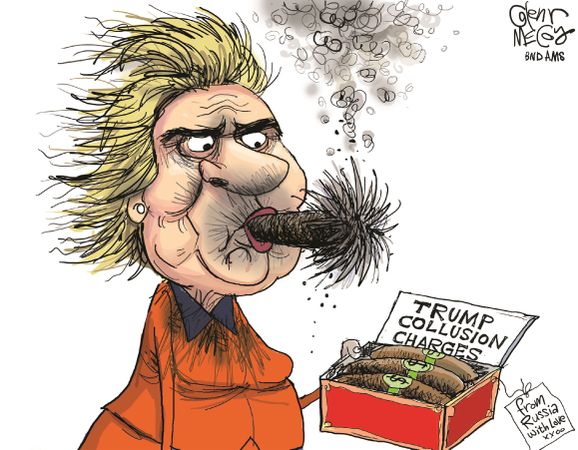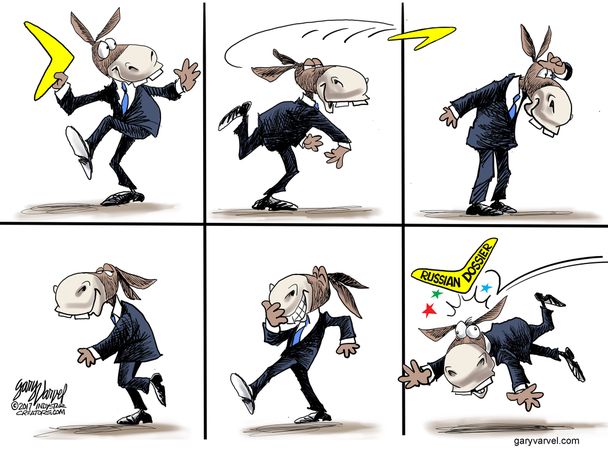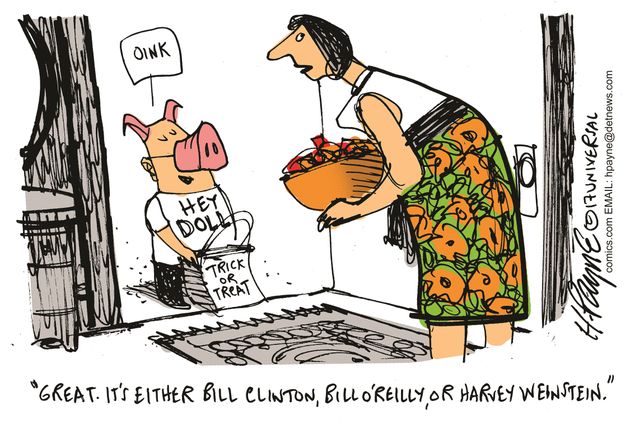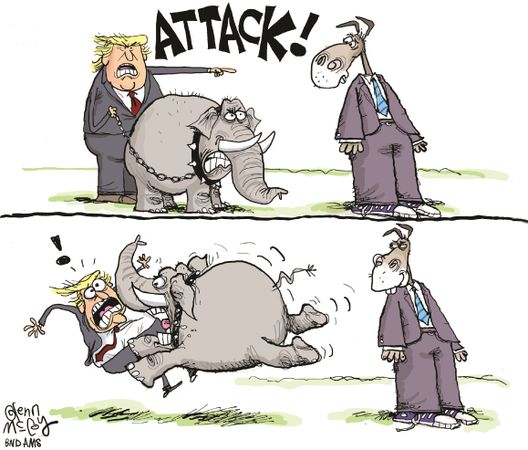As I am neither a Democrat nor a Republican, I don't really care about inter-party squabbles, and quite frank, even when I became a nominal Republican in the late 80's, it had more to do with my disgust as a former conservative Democrat whose party had been hijacked by "progressives". I never contributed or worked for the Republicans (I did make 2 nominal contributions to the McCain campaign during the 2008 primary which I deeply regret, not because he lost, but McCain made politically naive blunders I still can't understand and cast serious doubt about his executive judgment).
But there have been persistent disingenuous myths over how Democrats in the White House are "good" for the economy (never mind that Carter misery index thing), and I think the following Internet meme was the proverbial straw that broke the camel's back:
 |
| via Democrat partisan on Twiiter |
First, Presidents don't really have any direct controls over the economy: they can foster growth by reducing taxes (providing an incentive to work, invest and save), spending (including dubious displacement of the free market, international meddling, etc.), the size of the government, and regulations, promoting trade and strong currency, etc. There are a number of things they can do, including implementing an economic liberal agenda, appointing Federal Reserve governors and chairmen (assuming the Fed must exist) who are focused at currency stability, downsizing the international footprint and regime uncertainty.
Second, there are structural factors like the business cycle, which operate across President terms, and exogenous shocks, like energy prices (e.g., Middle East instability). The Fed may increase rates, which pressures profits and stock prices.
Third, there are other branches of the federal government, namely the Congress, which makes the laws, and the courts (which, among other things, famously and rightly struck down key parts of FDR's early New Deal legislation). Let's not forget, after Clinton raised taxes and tried to pass HillaryCare into law, he lost the House (and ultimately the Senate) for his last 6 years of office. After ObamaCare and Dodd N. Frankenstein in the 111th Congress, Obama lost the House (and ultimately the Senate) for his last 6 years of office. So who's responsible: the Congress who puts a spendthrift POTUS in a box, or the President?
Clinton inherited an economy already emerging from a recession, as did Obama. (In the 2007 recession, 14 months of the 18-month recession occurred on Bush's watch.) Moreover, to those of you who take taken a class in macroeconomics, policies like a stimulus (like government spending or one-off tax cuts/rebates) don't have an immediate impact on the economy but could take 6 months or more to propagate through the economy. In fact,
of the mid-February 2009 signed ARRA, only $114B was spent in FY 2009 (including months after June), a relatively modest amount in a $15T economy, and much of that was basically aimed at Dem crony political interests in government/education, infrastructure and green energy, not the private sector.
And quite clearly Clinton and Obama won their elections in large part due to voter concerns over the recessions. Presidential terms rarely dovetail with economic cycles. Let's remember that Bush 41 was struggling with the S&L crisis (basically emerging from bad government policy) which had its roots in earlier years, budget wars with a spendthrift Dem-controlled Congress, and a Fed raising rates late in the business cycle.
The IT boom that ignited the 90's decade of growth had nothing to do with Clinton; commercialization actually started in 1992. Bush had basically negotiated NAFTA but ran out of time in office to ratify it. To his credit, Clinton, largely with GOP support, was able to pass NAFTA. . Clinton himself conceded that the era of Big Government was over. Clinton found a way to work with Congress on deregulation, tax reform, and welfare reform. While early in Clinton's Presidency, deficits had been projected through the next several years, we actually saw a string of small budget surpluses for the first time in decades.
It should be clear that I'm not a fan of the fiction that Clinton and Obama are responsible for whatever successes Bush and Trump had. Let's point out that the Nasdaq began its huge correction in the spring of Clinton's last year in office and extended well into Bush's first term. It would take the Nasdaq over 15 years to recover, a crown jewel of the American economy, at least in part due to easy money policies of the Fed and unsustainable demand. In other words, part of Clinton's final term of office included sales which were accelerated from the early Bush years. (IT customers booked multiple orders to ensure delivery and then cancelled redundant orders; suppliers overestimated demand.) Bush not only faced, unlike Clinton or Obama, bookend recessions but the 9-11 attacks, which crippled the airline and hospitality industries, and the corporate scandals, most of which had their origins during the Clinton years.
I have a lot of issues with Bush's performance. He only tepidly supported GSE reform after the accounting scandals (although Dem Frank's "let's roll the dice" is infamous). He was hyping home ownership at a historical high, despite slow income growth and the Fed enabling a second massive bubble in less than a decade. From a classical liberal standpoint, Bush was a huge disappointment: domestic spending up by record amounts since the LBJ administration, tax stimulus, almost everything he did during the 2007 recession, including TARP. But the progressive talking points of wild west deregulation and ruinous tax cuts are patently absurd. In fact, Bush added to government regulations, and his tax cuts didn't come close to the tax rates of the late 80's. (And there are several studies which show the government taking in about 17% of national income across tax rate changes over decades.)
As for Trump, let's first point out that Obama not only had near-zero interest rates during his entire Presidency (unprecedented), he became (I believe) the first POTUS not to hit 3% growth his entire time in office. I was mildly surprised to see the second straight quarter of 3% growth under Trump, especially given the massive natural disaster hits over the last quarter.
I do think that Trump has been off to a good start on deregulation, and I worry the stock market has gotten ahead of itself, with perhaps unrealistic expectations on tax policy, failed healthcare reform, etc. Nor to mention a massive public debt impairs a country's ability to sustain higher economic growth, a major problem Obama faced. Not to mention that Trump absurdly rejects free trade and immigration, which are strongly pro-growth policies.
I believe that we are near the top, if not at the tipping point of the business cycle; this expansion is over 8 years old and long in the tooth. Trump is not cutting spending, reforming entitlements. His nominee to replace Yellen is unlikely to promote a strong dollar policy. He doesn't understand that most imports are factors of production, and more expensive resources exacerbate costs for American producers, adversely affecting their global competitiveness.
Trumponomics are only a modest improvement over Obamanomics, potentially disastrous if he ignites or exacerbates trade and/or currency wars. He is closer to a market top than a market bottom. If I knew, I would become a rich man; many people in the last decade knew we were in a bubble real estate economy but lost fortunes trying to predict when the bubble would burst.


